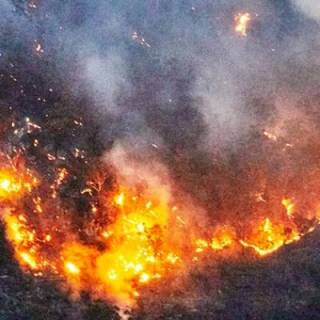Green UCL brings together students and staff in tackling the challenges of sustainability. Our Department has its own dedicated Green Team.
Mathematics Green Team Members
Sonya Crowe
TD Dang
Sam Harris
Edward Johnson
Feel free to chat to any of us about any green-related matters.
UCL's Sustainability Strategy
Please click here for UCL's Sustainability Strategy
UCL's Sustainability Annual Report
Please click here for UCL's Sustainability Annual Report 2019-20
Energy Use data for 25 Gordon Street
Please click here for information regarding energy usage data for 25 Gordon Street
Biodiversity
Did you know that UCL has a Biodiversity Action Plan (BAP) which sets out the objectives and actions for improving biodiversity on campus? You can support the College's biodiversity by taking part in planting sessions, surveys or suggesting locations for bee or bug hotels.
Research in mathematics related to the environment and sustainability
1. Ocean and Atmosphere Dynamics
The primary tool in the study of climate change is the global climate model (GCM), a complicated computer simulation which allows us to make predictions for the future. There are many different components to the climate system-such as the ocean, atmosphere and cryosphere (the frozen bits)-with complicated interactions between them. Non-scientific literature tends to focus on the role of the atmosphere however these other components are similarly important. For example, the ocean contains around 93% of the Earth's carbon dioxide and stores over 90% of the excess heat from global warming. Additionally, sea ice loss and the darkening of ice by carbon particles reduces the amount of sunlight reflected in polar regions, leading to a feedback mechanism which accelerates global warming. An understanding of the physics behind these processes is vital for building reliable GCMs.
Our work focusses on understanding various oceanic and atmospheric processes. These include; vortex dynamics, wave generation/breaking, boundary dynamics, ocean turbulence, fronts in the ocean/atmosphere, stratosphere-troposphere coupling and the global ocean circulation. We use a wide range of mathematical and computational techniques to solve both realistic and idealised problems.
2. Mathematical modelling of wildfire spread

3. How mathematics can contribute to the climate change debate
Sustainability while working remotely
https://www.ucl.ac.uk/sustainable/news/2020/jun/sustainability-while-working-remotely
- Create good ventilation for your laptop: this can be done by using a laptop stand, and making sure to regularly clear the fans of dust
- Unplug your laptop once it is full of battery
- Adjust your laptop settings so it goes into ‘sleep’ mode when left idle for a few minutes
- Shut down your laptop when you’re not using it, and unplug it.
Giki zero personal carbon calculator
Recycling at UCL
https://www.ucl.ac.uk/sustainable/stay-loop
 Close
Close


